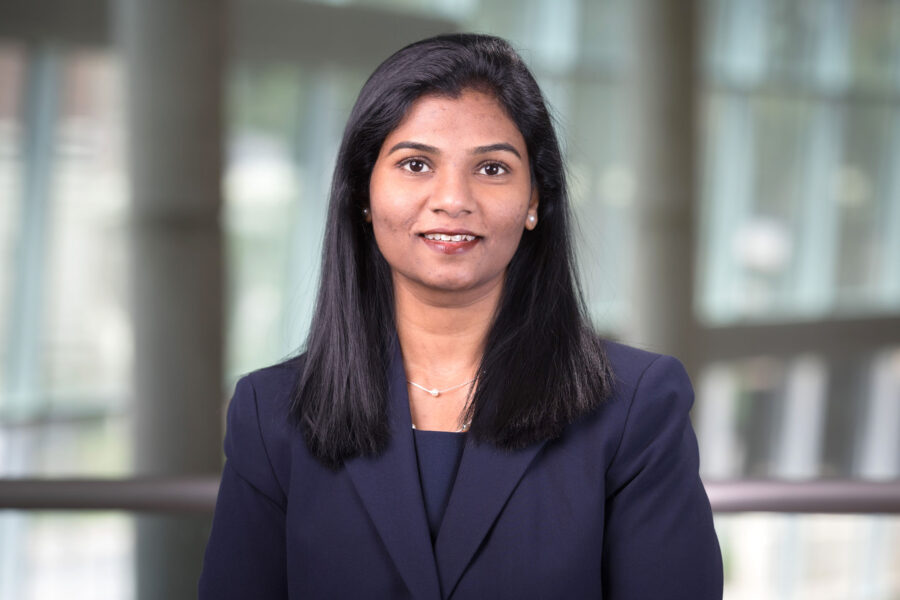UNMC’s diagnostic cytology program, housed within the UNMC College of Allied Health Professions, now has more distance-learning clinical placement locations (18) across the country than there are total cytology programs in the United States (16).
Over the last three years, UNMC has produced more than one in five of the nation’s cytology graduates.
UNMC has become the overwhelming leader in the field of cytology education thanks in large part to the UNMC allied health innovation of being the first in the nation to incorporate virtual microscopy into its teaching and learning model. This allows UNMC faculty to lead the didactic portion of the master’s in diagnostic cytology program from Nebraska synchronously – while hands-on clinical training takes place in partner clinical placement locations across the U.S.
What is diagnostic cytology?
A career in diagnostic cytology is an opportunity to become a “disease detective,” according to UNMC’s College of Allied Health Professions.
Cytologists assist with patient procedures called fine needle aspirations in various clinical settings and perform microscopic examinations of specially stained slides of patient samples for the purposes of diagnosing cancer, precancerous lesions, benign tumors, infectious agents and inflammatory processes.
Cytologists are employed at the professional level in hospital and private laboratories, university medical centers and government facilities. Positions are available throughout the country in both urban and rural settings.
Because of the increased use of cytologic testing to confirm disease, more cytologists are needed. A national shortage of cytologists continues to pose a formidable challenge to laboratories regardless of size or geographic location.
The 16-month master’s degree program is accredited for distance education with clinical placement locations. Students from across the country are UNMC students and UNMC graduates, following the curriculum and instruction of UNMC faculty based in Omaha.
UNMC added its first distance clinical placement location in 2003 and has added three more so far this year to overtake the total number of independent programs.
“Cytology is a small world,” said program director Manju Mukherjee, PhD, associate professor and director of the cytology program. Dr. Mukherjee said she has fielded multiple inquiries from labs, hospitals and universities across the country the last few years interested in becoming UNMC-partner clinical placement locations.
Within this small world, “Our program is a national role model for innovative and creative curricular design and delivery to educate students from across the country to become competent cytologists,” Dr. Mukherjee said.
UNMC’s distance-learning model is supported by national professional organizations and embraced by labs and partner institutions across the country. The program also is assessing potential strategies for utilizing UNMC’s iEXCEL health care simulation program to facilitate its continued growth nationally and internationally in future.
The Journal of the American Society of Cytopathology noted that the “cytology workforce shortage is a real and critical issue.”
“There is a tremendous shortage of cytologists in the United States,” Dr. Mukherjee said. “We desperately need them, and we are happy about our program’s significant contribution in graduating cytologists to meet the workforce that is very much needed in the United States right now. The contribution from our CPL coordinators plays an integral part in our program’s success.”
Some clinical placement location partners are private labs looking to train their own employees. Critical Values, a publication of the American Society for Clinical Pathology, reported: “To address the acute workforce deficiencies, some organizations are taking action to create a more diverse and robust pipeline of needed employees by ‘growing their own’ laboratory teams — developing training programs within their own institutions and in partnership with outside organizations to fill the immediate needs they are seeing in their own communities.”
Other partners are universities and health science centers looking for a way to offer a cytology program in their respective regions.
UNMC has the capacity to have about 10 learners in Omaha, with others across the country completing the program throughout the potential 18 clinical placement locations. UNMC typically graduates 20 to 25 per master’s degree class.
Those graduates are proud alums of UNMC. Some come to Omaha to graduate in person.

What an great article showcasing Dr. Mukherjee’s leadership and the national impact of UNMC’s Diagnostic Cytology program! I’m grateful to have the opportunity to work alongside this outstanding team.
Very much impressed by the programme Director Dr. Manju Mukherjee’s leadership and the national impact of UNMC’s Diagnostic Cytology program!!